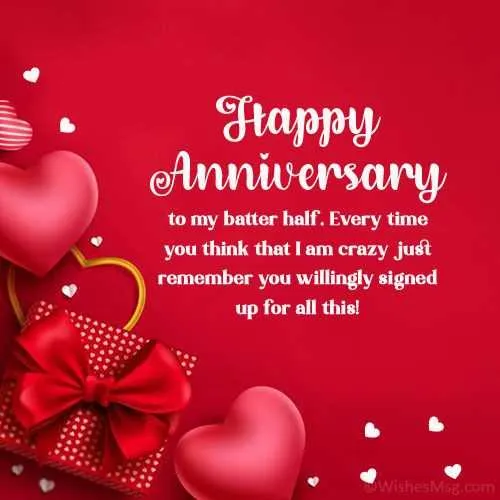A heartfelt message filled with gratitude and love for my husband on our anniversary

Write from the moment you realized how much his presence means. Begin with a specific memory, one that instantly brings a smile. It could be the way he makes coffee just the way you like it, or how he reaches for your hand without thinking. These are not small things–they are your shared rhythm.
Focus on what makes your bond unique. Mention the inside jokes only the two of you understand, the quiet strength he offers when you’re overwhelmed, or the way he looks at you like you’re still the best part of his day. These details carry weight because they’re real, lived, and constant.
Acknowledge the growth between you. Instead of general reflections, reference tangible changes: the home you built together, the habits you’ve picked up from each other, the compromises that made your connection stronger. Be specific. Avoid exaggerations. The truth, simply told, will say more than any grand gesture.
End with a message that only he would recognize. Maybe a phrase you both say before sleeping, or a line from a letter you once wrote. Personal touches matter more than polished words. Keep your message close to your voice–it’s the one he knows best.
Message for My Husband Anniversary
Write him a handwritten note that recalls one shared moment he often mentions with a smile–something like the exact words he whispered during your first trip together or how he held your hand before a big decision. Quote him directly. Include a short line explaining how that memory still affects how you see him today. This creates a clear emotional link.
Avoid general praise. Instead, mention three things he consistently does that make your connection stronger. For example, “You never let a day pass without checking on how I feel,” or “You still make coffee just the way I like it.” Use specific actions, not vague traits.
End with a sentence only he would understand–a nickname, inside joke, or phrase that means something only to both of you. This makes the message feel personal, not copied or generic. Keep the tone warm and honest. Avoid poetic metaphors or formal expressions. Speak to him the way you would over breakfast.
How to write a heartfelt message that reflects your journey together
Pick one memory that defines a turning point in your relationship–describe it in detail. Mention where you were, what you both felt, and why that moment still matters. This grounds your message in something real and personal.
Use specific language. Instead of saying “you’ve always supported me,” try “you stood by me during my job search when I couldn’t see a way forward.” These details carry emotional weight and make the message feel sincere.
Balance emotion with honesty. Include something you’ve learned from him or a way he’s changed your view of the world. For example, “You taught me to be more patient by how you listened when I was frustrated.”
Write as if you’re speaking directly to him. Skip formalities and keep the tone close and conversational. For example, “I still laugh when I think about that road trip with the broken GPS.”
Close with something you look forward to. Mention a shared goal or simple plan, like a quiet weekend away or just more mornings with coffee and no rush. This keeps the message grounded in your shared reality and adds warmth without exaggeration.
Choosing words that match your relationship’s tone and style
Match your message to how you naturally speak with your partner. If your everyday tone is playful, keep the message light and filled with personal jokes. If your connection leans toward quiet warmth, use soft language with a gentle rhythm.
- Use real phrases you both say: Borrow lines from inside jokes, favorite movies, or shared habits. This adds recognition and comfort.
- Stay consistent with your communication style: If you’re usually brief, keep the message short and sincere. If you write longer texts or letters, feel free to add thoughtful detail.
- Avoid clichés: Swap “you complete me” for a personal observation like “you always know how to calm me down when I’m overwhelmed.”
- Balance emotion and personality: A message that’s too formal might sound distant. Too casual, and it can feel dismissive. Reflect how you usually express love–funny, calm, deep, or direct.
- Adapt to his reactions: Think about past times you’ve shared your feelings. What made him smile, pause, or respond meaningfully? Let that guide your tone.
Let your voice lead the message, not a template. Writing with your relationship’s rhythm builds real connection.
Incorporating personal memories to make your message unique
Choose one moment that defines your relationship–a spontaneous trip, an inside joke, or the night you both stayed up talking until sunrise. Use that moment as the heart of your message. Describe how you felt, what you noticed, and what made it unforgettable. Avoid vague sentiments–mention the song that played in the background, the weather, or even what you wore.
Include exact phrases your partner said that stuck with you. These small details show attention and make your message feel handcrafted. Refer to shared rituals, like your Sunday coffee routine or the way he always finds your misplaced keys. These references ground your message in real life, giving it emotional weight.
If you’ve saved letters, texts, or notes, quote a short line. Use it as a bridge between past and present, showing how the connection has grown. Personal memories transform words into something only the two of you could have written together.